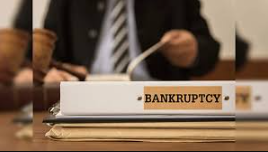Dig deep into the Genesis bankruptcy docket uncover real updates, legal insights and how lawyers are shaping this ongoing financial drama.
If you’ve been anywhere near the world of cryptocurrency in the past couple of years, you’ve most likely heard at least a couple of mentions (or even full-blown conversations) about the Genesis bankruptcy docket. Sure, it sounds like a very dry and technical term until you realize it relates to one of the biggest collapses in digital finance history.
I still recall one night when I first discovered the court filings. It was past midnight, my screen backlit with pages and pages of legal filler. But even though it was dense legal language, I almost felt the fear of an empire collapsing, billions in crypto-backed loans flushed away, investors locked out, and creditors with no real answers.
Content Hints
What Is the Genesis Bankruptcy Docket?
Essentially, the Genesis bankruptcy docket is the court’s official record for the Chapter 11 bankruptcy case of Genesis Global Holdco LLC the parent company of the crypto lender Genesis Global Capital.
When a party files for bankruptcy, every filing, hearing, motion, and order is noted in what is called a “docket.” The docket is the legal heartbeat of the case.
In January 2023, Genesis sought Chapter 11 bankruptcy relief in the Southern District of New York in the U.S Bankruptcy Court, after experiencing its own chaos that began when the failures of large cryptocurrencies companies like FTX and Three Arrows Capital sent shockwaves through the crypto space. The company reportedly owed more than $3.5 billion with respect to its 50 largest unsecured creditors.
What Happened With Genesis to Cause Bankruptcy?
Let’s be honest here, crypto lending during the 2021 bull run was like a gold rush, everyone was borrowing and staking and multiplying their digital assets. But with the markets collapse in 2022, the entire foundation of these loans which were collateralized in volatile tokens crumbled.
Genesis, which was previously a reputable crypto lending powerhouse, now suddenly had huge unpaid loans on its books.
- Liquidity crisis: When FTX crashed, Genesis lost access to locked up funds exceeding $175 million.
- Borrower Defaults: Key borrowers like Three Arrows Capital couldn’t repay, causing cascading losses.
- Regulatory Pressure: The SEC began probing Genesis over its yield-earning products, further tightening the noose.
By early 2023, the company’s balance sheet had become a battlefield and the Genesis bankruptcy docket became the battlefield map.
How Can You Access the Genesis Bankruptcy Docket?
You can find all filings through Kroll Restructuring Administration, the official claims and docket site for the Genesis bankruptcy case. Each document offers a window into how this case is unfolding from creditor lists to proposed settlements and court orders.
Verified Case Information:
- Case Name: Genesis Global Holdco LLC, et al.
- Court: U.S. Bankruptcy Court, Southern District of New York
- Case Number: 23-10063 (SHL)
- Judge: Sean H. Lane
If you’re tracking creditor recoveries or legal rulings, that docket is your best friend (though you’ll need patience; those filings can read like a foreign language).
What’s the Latest Update on the Genesis Bankruptcy Docket?
As of October 2025, here’s where things stand:
- Genesis has reached partial settlements with parent company Digital Currency Group (DCG), but disputes remain over repayment terms.
- Creditors are pushing for higher recovery rates, claiming DCG undervalued Genesis’s assets.
- Regulators are scrutinizing the lending practices of Genesis to determine if there was a violation of securities laws, notably with respect to the now-obsolete “Earn Program.”
- The Securities and Exchange Commission settlement earlier this year (2025) required Genesis to pay fines for offering unregistered securities through its partnership with Gemini Earn.
Each of these actions appears in the Genesis bankruptcy docket, like a long dramatic court novel, one action after another.
What Legal Framework Governs the Genesis Bankruptcy Docket?
The legal framework in this case is Chapter 11 of the United States Bankruptcy Code that allows companies to reorganize while continuing limited operations. The relevant legal sections include:
- 11 U.S.C. §1101-1174:De fines the reorganization process.
- 11 U.S.C. §362: Provides for the “automatic stay,” stopping lawsuits and collections.
- 11 U.S.C. §1121-1129: Governs the proposal and confirmation of the plans.
In this case, under Chapter 11, Genesis needs to file a plan to pay back the creditors over time while also keeping some operations to preserve value. Both debtors and creditor lawyers take a prominent role here. The lawyers negotiate, argue and write the reorganization plans that determine who gets what.
What Function Do Attorneys Fulfill in this Bankruptcy Docket?
Let’s start by discussing the underappreciated (and sometimes obscured) players in bankruptcy attorneys. In the bankruptcy docket for Genesis, the inequality of power exists with top tier Heavyweights such as Cleary Gottlieb Steen & Hamilton LLP and White & Case LLP representing the different sides.
These attorneys facilitate:
- Negotiations with creditors, ensuring fair (or at least defensible) repayment plans.
- Regulatory compliance, especially amid SEC and DOJ scrutiny.
- Asset tracing, particularly when crypto funds are scattered across exchanges and wallets.
As someone who’s spent late nights sifting through docket entries, I’ve come to appreciate how every filing tells a story of human effort lawyers fighting to salvage what’s left, creditors holding onto hope and regulators trying to keep the system honest.
Why Does the Genesis Bankruptcy Docket Matter for the Future of Crypto?
Because this isn’t just a company’s downfall it’s a legal test case for how crypto bankruptcies are handled. Genesis’s docket reveals how courts interpret digital assets, crypto loans and investor protections.
- It shows how traditional bankruptcy law adapts to digital finance.
- It sets precedents for how tokens, wallets, and smart contracts are valued in liquidation.
- It highlights regulatory gray zones, pushing lawmakers to clarify digital asset rules.
This case is shaping the blueprint for every future crypto bankruptcy. The Genesis bankruptcy docket is not just paperwork it’s the legal DNA of tomorrow’s digital economy.
Key Insights
- Transparency Is the New Currency: Every filing exposes how opaque lending practices fueled the crypto collapse.
- Lawyers Are Now the New Miners: Instead of mining tokens, they’re mining legal loopholes and settlements.
- Regulation Is No Longer Optional: The docket proves the crypto world can’t operate outside legal boundaries anymore.
What Can We Learn from This Case Personally?
If there’s one thing this saga taught me, it’s that trust without verification is a recipe for heartbreak. I’ve seen friends who believed in “crypto lending” lose savings overnight not because they were reckless, but because they trusted a system still learning how to govern itself.
The Genesis bankruptcy docket reminds us that even in digital revolutions, the law is the final line of defense. And maybe, just maybe, that’s a good thing.
Key Takings
- Yes but it’s not just about repaying creditors or rewriting financial code.
- It’s about rebuilding trust in an industry that has tested everyone’s faith.
Additional Resource
- Law360 Legal Analysis of the Bankruptcy Docket: Law360 offers a deeper dive into Genesis’s bankruptcy hearings, motions and restructuring strategies through its detailed analysis of the Genesis bankruptcy docket and related legal proceedings.











